Häufige Kühlschrankgeräusche und einfache Lösungen für eine ruhigere Küche
Ein Kühlschrank gehört zu den am härtesten arbeitenden Geräten in jedem Haushalt. Er läuft 24/7, um deine Lebensmittel frisch zu halten – doch manchmal entstehen Geräusche, die störend oder besorgniserregend wirken können. Während manche Töne völlig normal sind, deuten andere auf Probleme hin, die Aufmerksamkeit erfordern. Wenn du die Ursachen dieser Geräusche verstehst, kannst du sie schnell beheben und deinen Kühlschrank in Top-Zustand halten.
In diesem Blog sehen wir uns die häufigsten Geräuschprobleme bei Kühlschränken an, erklären ihre Ursachen und geben dir einfache Lösungen, die du zu Hause ausprobieren kannst. Am Ende erfährst du außerdem, warum ein zuverlässiges und leises Modell wie der SMAD Gas-Kühlschrank einen großen Unterschied machen kann.
Normale vs. problematische Geräusche
Nicht alle Kühlschrankgeräusche sind ein Grund zur Sorge. Ein leichtes Brummen, gelegentliches Klicken oder das Fließen des Kältemittels durch die Leitungen sind völlig normal. Das gehört zum normalen Betrieb. Hörst du jedoch anhaltendes Rattern, Summen oder lautes Knallen, ist es Zeit, genauer hinzusehen.

Häufige Kühlschrankgeräusche und ihre Lösungen
1. Rattern oder Vibrationen
-
Ursache: Lose Teile, unebener Boden oder Gegenstände auf dem Kühlschrank.
-
Lösung: Stelle sicher, dass der Kühlschrank gerade steht, indem du die Füße einstellst. Entferne alle Objekte von der Oberseite und überprüfe die Rückwand oder die Auffangschale auf lockere Teile.
2. Summen oder Brummen
-
Ursache: Der Kompressor oder die Eismaschine (falls vorhanden) können summende Geräusche verursachen. Auch verschmutzte Kondensatorspulen können den Kompressor belasten.
-
Lösung: Reinige die Kondensatorspulen mindestens zweimal im Jahr, um den Luftstrom zu verbessern. Falls du eine Eismaschine hast, überprüfe die Wasserleitung auf Verstopfungen oder zu niedrigen Druck.
3. Klicken oder Klopfen
-
Ursache: Der Abtau-Timer oder die elektronischen Steuerungen schalten ein und aus.
-
Lösung: In der Regel harmlos. Wenn das Geräusch jedoch ständig auftritt und gleichzeitig Temperaturprobleme bestehen, sollte ein Techniker hinzugezogen werden.
4. Gluckern oder Zischen
-
Ursache: Kältemittel, das während des normalen Betriebs durch die Leitungen fließt.
-
Lösung: Kein Eingreifen nötig. Dieses Geräusch ist in der Regel normal, es sei denn, es treten zusätzlich Kühlprobleme auf.
5. Schleifen oder Kratzen
-
Ursache: Ein defekter Verdampfer- oder Kondensatorlüfter, oft durch Schmutz oder abgenutzte Lager.
-
Lösung: Ziehe den Stecker und überprüfe den Lüfterbereich auf Fremdkörper. Besteht das Geräusch weiterhin, muss der Lüftermotor möglicherweise ersetzt werden.
Geräuschproblemen vorbeugen
Regelmäßige Wartung ist entscheidend, um Geräuschprobleme zu vermeiden. Hier ein paar Tipps:
-
Stelle sicher, dass der Kühlschrank gerade steht, um Vibrationen zu vermeiden.
-
Reinige die Kondensatorspulen regelmäßig.
-
Überlade die Regale nicht, damit das Kühlsystem nicht überlastet wird.
-
Überprüfe Dichtungen und Scharniere, damit die Türen richtig schließen.
Mit vorbeugender Pflege bleibt dein Kühlschrank leise und effizient – über viele Jahre hinweg.
Warum einen SMAD Gas-Kühlschrank wählen?
Wenn du genug von lauten Geräten hast, ist ein SMAD Gas-Kühlschrank die ideale Lösung. Diese Kühlschränke sind so konstruiert, dass sie extrem leise laufen – perfekt für offene Küchen, Wohnmobile, Ferienhäuser oder ein Leben abseits des Stromnetzes.
Neben der geräuscharmen Arbeitsweise punkten SMAD Gas-Kühlschränke auch mit Energieeffizienz, Zuverlässigkeit und Langlebigkeit. Sie halten deine Lebensmittel frisch und sicher, während du ein ruhiges und entspanntes Zuhause genießen kannst.
Fazit
Kühlschrankgeräusche können von harmlos bis hin zu ernsthaften Problemen reichen. Wenn du erkennst, um welche Art von Geräusch es sich handelt, und die passenden Maßnahmen ergreifst, kannst du viele Probleme selbst lösen. Und wenn du eine leise und sorgenfreie Lösung suchst, bietet der SMAD Gas-Kühlschrank die perfekte Kombination aus Haltbarkeit, Effizienz und nahezu geräuschlosem Betrieb.

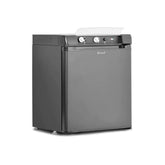

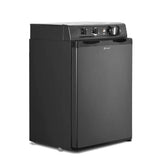
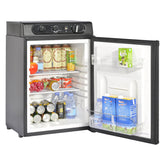
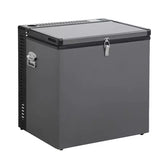
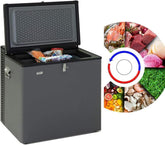
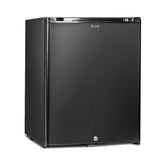
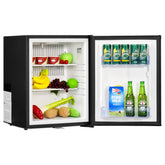
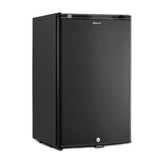
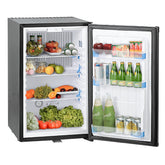

Hinterlasse einen Kommentar
Bitte beachte, dass Kommentare vor der Veröffentlichung genehmigt werden müssen.